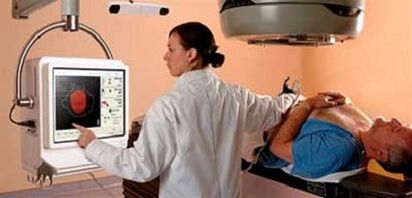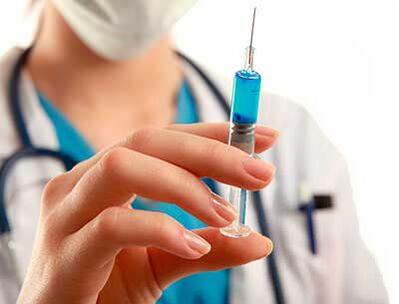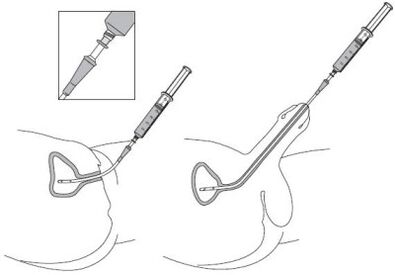In order to eliminate the inflammatory changes in the prostate tissue, urologists usually prescribe some drugs for the treatment of prostatitis.
Don't think that modern medicine can help everyone who is sick cope with this disease.
The choice of medication depends on many factors. In order to quickly recover and prevent acute prostatitis from turning into a chronic form, it is necessary to choose all therapies after a thorough examination.
Which drugs can be used to treat prostatitis
In order to treat acute prostatitis, drugs are always needed. Without their use, it is impossible to completely stop the inflammation and restore the function of the prostate.

Men must go through the entire treatment process to end. The disappearance of symptoms does not mean a complete cure.
Therefore, if you stop taking the medication, then this will be the main reason that prostate inflammation turns into a recurrent disease (ie, chronic phase).
The medicine is selected based on the data obtained during the inspection and can be prescribed in complex therapies with herbal and folk remedies.

Doctors should consider the detection of certain microbial flora in the smear, clinical signs and patient complaints, as well as the data obtained during the instrumental examination of the prostate.
Based on this, antibacterial, anti-inflammatory and restorative treatments were chosen.
According to the course of the disease, all selected drugs are prescribed in the form of injections and tablets. Sometimes the drip method is used.
Injectable drugs
Basically, they are prescribed by a urologist during the acute inflammatory phase, and most of them are antibiotics.
Injection of drugs can quickly achieve the desired therapeutic effect, but the injection of prostatitis is carried out in the hospital.
For severe pain, anesthetic injections can also be used.

pill
To treat prostatitis, they can be used for a long time. Tablet drugs include non-steroidal anti-inflammatory drugs, antispasmodics, and muscle relaxants.
In the case of prostatitis, it is also important to use drugs that improve metabolism.
Recently, bioregulatory peptides are often prescribed to improve the regeneration of prostate cells.
Drip
This is to introduce a drug solution with a specific mechanism of action into the urethra.
The introduction of drugs into the urethra can clear the bacterial flora as soon as possible and restore the inflamed mucus layer more quickly.

candle
Another dosage form used to treat prostatitis. Candles used for prostatitis are used as analgesics and anti-inflammatory drugs.
You can also replace microsuppositories with suppositories with drugs, which are designed to improve the microcirculation in the prostate tissue.
The dosage form used to treat a particular patient can only be determined by the doctor.
Some people who are sick have to get an injection, and some people can be cured with medicine. The choice of treatment depends on the stage of the disease.
In the chronic phase, pills are mainly used, but usually they must be drunk for a long time.
The most popular and widely used prostatitis drug
When choosing a treatment plan for the patient, the urologist should consider all possible contraindications and the sensitivity of the detected pathogen to the drug.
As acute prostatitis is still a bacterial infection in most cases, treatment should start with the use of antibacterial drugs.
Not limited to this, doctors also choose other drugs that help improve blood circulation, relieve cramps and help cells.
In other words, all treatments involve the use of several drugs with different mechanisms of action at once.
Drugs for bacterial prostatitis
If it is determined that prostatitis is caused by bacteria, antibiotics should be prescribed.
First, they choose drugs with a wide range of effects, that is, drugs that can be immediately destroyed by several microorganisms.
- Cephalosporins are most commonly administered by injection. The drug is injected intramuscularly or intravenously for at least 10 days;
- Penicillin is used in the form of tablets with specially selected doses;
- If antibiotics in other groups are not tolerated, fluoroquinolol is used. The medicine can be used for two weeks.
Treatment of acute prostatitis
In the case of prostatitis in the acute stage of the disease, in addition to antibacterial drugs, non-steroidal anti-inflammatory drugs and antispasmodics are required.
Under their influence, the inflammation reduces faster, the pain disappears and is accompanied by discomfort.
- There are two types of sedatives: injections and tablets. In the hospital, they are injected intramuscularly to relieve pain.
- Non-steroidal anti-inflammatory drugs can also be used in injections and tablets. If a person also suffers from gastric disease, then it is best to use injectable drugs, because this group of drugs can negatively affect the mucosal layer of the organ. At present, injections or suppositories are most commonly used.
Treatment of viral prostatitis
Viral prostatitis is rare. In this case, in addition to the impact of the virus on the development of the disease, the decline in human immunity also plays a role.
The pathogens of this disease include herpes simplex virus, influenza virus, human papilloma virus infection.
In addition to anti-inflammatory drugs and microcirculation improvers, doctors also prescribe antiviral drugs to treat viral prostatitis.
You also need funds to increase immunity.
Medications to relieve muscle cramps
In the treatment of prostatitis, muscle relaxants are necessary to reduce the tension of tense muscles. This reduces pain and makes it easier to urinate.
Drugs that improve blood circulation
For any prostatitis, a circulatory system disease is always detected, which leads to the occurrence of stagnation and does not allow organ tissue to recover.
Therefore, in complex treatments, it is necessary to use drugs to improve blood circulation.
In order to normalize blood vessel filling, a preparation with horse chestnut extract was used.
Other types of drugs
As already mentioned, the doctor's treatment selection is based on many data displayed during the examination. Therefore, the treatment plan of one patient with prostatitis may be significantly different from the treatment plan of another patient.
In the case of prostatitis, it is usually necessary to prescribe additional immunomodulators. Under the influence of this, the function of the immune system can be improved more quickly.
In the chronic stage of the disease, injections are often used, which can strengthen blood vessels, improve cell regeneration, and have a positive effect on urination.
In the treatment of prostatitis, this drug is used repeatedly during 5-6 injections.
Biological supplements in tablet form are very popular.
These preparations contain trace element complexes that have a positive effect on prostate tissue.
Add up
The treatment of prostatitis should not be an independent choice. You can't just go to the pharmacy to choose drugs that restore prostate function.
This method leads to the transition from acute prostatitis to chronic prostatitis, and is one of the reasons for future sexual dysfunction.
Through a doctor's examination, you can accurately identify the cause of the disease and eliminate it with the help of a specific drug category.
In the process of drug treatment, urologists constantly monitor the changes that occur, so they can adjust the intake of drugs to find ways to improve the treatment effect.
Everyone should remember that pain and discomfort during urination and rest are good reasons to go to the hospital.
The timely treatment of prostatitis with drugs and drugs will free the patient from many troubles in the future.



























